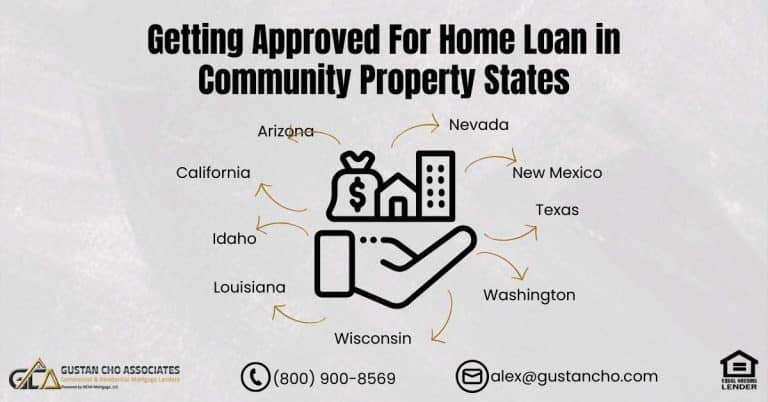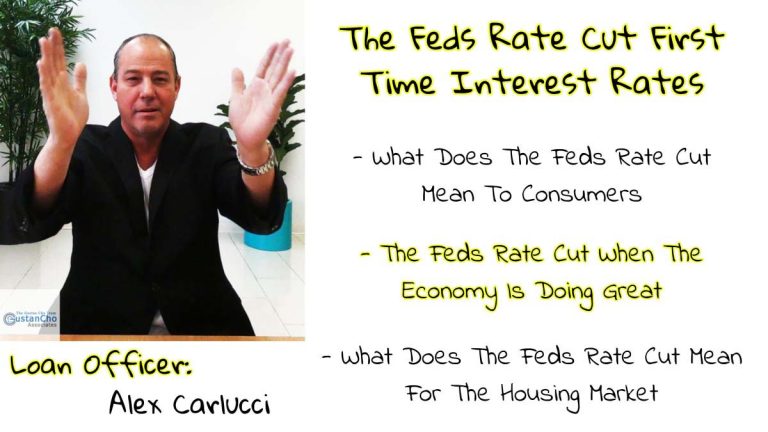This Article On Mortgage Blogs Online And The Validity Of Accurate Content
Mortgage Blogs are mortgage articles written about real estate, mortgage, and lending-related topics by writers and published on the internet.
- Most consumers who are in need of answers to questions on mortgages or real estate normally will search online and type in keywords or phrases for answers
- Google then lists pages of results of the keywords or questions input by consumers
- Many results will be blogs written by writers on specific topics and/or experts in the area that wrote articles on the subject topic
- The mortgage industry is so complex
- Just going over the mortgage lending guidelines by the Federal Housing Administration, Department of Veteran Affairs, Fannie Mae, and Freddie Mac can be extremely confusing and time-consuming that most consumers do not find it informational
- Mortgage Blogs are not just for consumers
- Many real estate professionals, attorneys, real estate agents, home inspectors, title company officers, insurance agents, and even mortgage brokers and mortgage underwriters read mortgage blogs
- Mortgage Blogs can be extremely helpful for those seeking information about questions they may have on all areas of mortgage lending and real estate
In this article, we will discuss and cover Mortgage Blogs Online And The Validity Of Accurate Content.
Who Are The Writers Of Mortgage Blogs And Are The Information On Blogs Accurate?
Anyone can write a mortgage blog.
- A blog is an article written by a writer about a particular topic and published on a website, newspaper, or newsletter for the public to view
- There are thousands of bloggers and tens of thousands of mortgage-related blogs on the world wide web
- Anyone can write a blog
- You do not need any certification or special credentials to be a blogger
- A blogger does not even need any experience or knowledge on the topic he or she is writing about
- A blogger can just write about their opinion of the subject matter or their experience
- Many times consumers who search on the internet about a particular topic may get conflicting answers by various bloggers
- Many viewers often get confused and question who is right and who is wrong
- This often happens
- This is because blogs on the internet are not reviewed and/or monitored for accuracy, validity, or inaccuracy
It is up to the viewer of the blog to determine the content and due to further research to check the validity of the content of the blog.
Content Writers With No Mortgage Lending Experience
Many mortgage blogs are written by writers who are not in the mortgage business and often contain errors on content.
- For example, a national publication like the Wall Street Journal may have a staff reporter and writer that wrote about Fannie Mae Guidelines On Qualifying For Mortgage After Bankruptcy
- The Wall Street Journal writer has never ever originated a loan in his life before
- Or not even know anything about mortgage lending guidelines
However, the writer can write and publish a 1,000-word mortgage blog on a complex topic like Qualifying For Mortgage After Bankruptcy and the Fannie Mae Guidelines.
Researching The Expertise Of The Writer Of The Content Written
The author may have great intentions in his writings.
- However, he is not a professional mortgage expert but he is a professional writer
- When viewing mortgage blogs, the viewer should always check and research on who the mortgage blog writer is
- Nothing is wrong with reading blogs about mortgages that were written by a writer from The Chicago Tribune
- But a mortgage blog written by a practicing mortgage loan professional may carry more weight and credibility than a mortgage blog written by a newspaper writer with no mortgage origination experience
- Same with other topics
A blog written about the pros and cons of filing Chapter 7 Bankruptcy by a Bankruptcy Attorney will carry more weight than a writer who has no experience or industry experience in Bankruptcy Laws.
Mortgage Blogs Are Great Informational Source
Mortgage Blogs are great information sources for consumers and real estate industry professionals.
- For example, I have hundreds of subscribers to my Mortgage Blog at Gustan Cho Associates
- Many of our viewers and fans at Gustan Cho Associates are real estate industry professionals such as real estate attorneys, real estate agents, accountants, money managers, real estate investors, and consumers besides just home buyers or homeowners needing a refinance mortgage loan
- On the flip side, I also subscribe to other mortgage and real estate blogs so I can keep in touch with the latest real estate and mortgage information
I have a list of my favorite real estate and mortgage bloggers and keep a lot of their blog articles saved on my archives to use them as a resource tool.
Mortgage Blogs To Stay Away From
Unfortunately, many mortgage websites have mortgage blog articles published for the sole purpose of lead generation and not as an informational tool for consumers. Be careful when you run into a new mortgage blog website and if the website is a newer website and promoting their product is their number one mission, then the chances are that this website is not intended to be an informational center. For example, if the mortgage blog repeats itself with statements like ” Lowest Mortgage Rates In Town” or “Call Today And Apply And Get Free Credit Report” or ” For A Limited Time There Is No Appraisal Fee” or some other solicitations, then the chances are that the mortgage blog website’s mission is to solicit borrowers and not offer valuable information to consumers.
Mortgage Blogs By Gustan Cho Explained:
- Mortgage Blogs are great informational sources for home buyers looking to see whether they qualify for a home loan
- Borrowers who think they will have a hard time qualifying for a home loan often can get their questions answered at Gustan Cho Associates
- The mortgage business is so complex
- So many mortgage guidelines and new rules that are always coming up
- It is not just difficult to keep up for borrowers but also for mortgage professionals
- Just because you are a licensed mortgage loan originator does not mean that you know everything
- As a manager of a mortgage banking institution, I have many licensed mortgage loan originators who are under my direct supervision and management
- I often get asked many case scenarios by our loan officers
- It is almost impossible to know every case scenario
- Many times I have to look up the lending guidelines of the particular mortgage loan programs
In this article, we will discuss Mortgage Blogs By Gustan Cho Associates Mortgage Group and how we help borrowers and real estate professionals with the latest mortgage news.
Agency Mortgage Guidelines Versus Lender Overlays
FHA, VA, USDA, Fannie Mae, and Freddie Mac all have their own mortgage lending guidelines and they are all different.
- Many times when the mortgage guidelines are vague, we often contact our underwriting department and speak with either an underwriting manager and/or the underwriting director for clarification
- There are many instances that the underwriting management team will not have an answer to the particular case scenario we have in question
- Often times they will contact HUD (For FHA Loan Case Scenarios) or Fannie Mae (For Conventional Loan Case Scenarios)
We have tens of thousands of viewers of my daily mortgage blogs we publish. We want to explain the way we come up with our ideas and topics for our mortgage blogs and how we write them and the accuracy of them.
Mortgage-Related Topics
The way I get the topics to write about is by my viewers.
- Any loan officer can originate and fund any borrower that has an 800 plus credit score, 40% debt to income ratios, solid employment history, and perfect credit payment history
- Unfortunately, that is not how our world is and many hard-working Americans have gone through periods of hard financial times, especially after the Great Recession of 2008
- Never in United States history have so many people file for Bankruptcy or went through foreclosure in the history of the United States than during the 2008 Real Estate and Mortgage Meltdown
- Millions of hard-working Americans lost their businesses, lost the jobs that they had for decades, lost all of the hard-earned equity they had earned in their homes
- Many who went into retirement had been forced to get out of retirement and rejoin the workforce
People who counted on their retirement accounts or the equity in their homes saw all of their hard-earned retirement funds and equity of their hopes evaporate before their eyes.
Stable Employment And Income
Millions of folks who were unemployed never recovered and gave up even to this day looking for work.
- Many workers had to settle for multiple part-time jobs
- They no longer had benefits
- They took on menial jobs just to make ends meet
- Others had to settle for jobs that they were overqualified for
- Many gave up on hopes in having a career
- Instead, they were more concerned about putting food on the table for their families
- The real estate, mortgage lending, and construction lending fields came to an abrupt halt after the 2008 Real Estate and Credit Meltdown
- The whole mortgage lending industry went through a 180-degree overhaul
- Complete sectors of the mortgage industry got completely eliminated
The sub-prime mortgage lending sectors eliminated millions of jobs. Mortgage giants like Countrywide Home Loans and Washington Mutual went out of business overnight.
Mortgage Blogs By Gustan Cho On Case Scenarios
Mortgage Blogs By Gustan Cho: Most of the blog topics that I write about are from the actual mortgage case scenarios that our team at Gustan Cho Associates do.
- I specialize in originating and funding mortgage loans with no lender overlays
- Our team at Gustan Cho Associates can do FHA, VA, USDA, Non-QM, Conventional Loans, FHA 203k Loans, FHA Reverse Mortgages, Jumbo Mortgages, Non-Conforming Loans, Condotel and Non-Warrantable Financing, Commercial Loans, Hard Money Loans, and Specialty Financing
- So there can be thousands of case scenarios
- Mortgage Blogs are mortgage-related articles that are written by authors and published on websites
- I have been a blogger for many years
- We have written thousands of blogs and really enjoy writing and publishing blogs
- I have read many mortgage blogs by many other mortgage and real estate bloggers
- I have run into blogs that contain misleading information
- Some blogs are totally so far from the truth that viewers need to really not take each blog they read as 100% accurate information
- Find out who wrote the blog
- Believe it or not, there are many mortgage bloggers who write daily mortgage blogs but have no experience whatsoever in the mortgage industry
- They have never ever originated or closed a home loan before
I am not saying that whatever they are writing is incorrect but a blogger needs to get their facts straight before publishing it live on the world wide web.
Mortgage Blogs By Gustan Cho And How To Check For Age Of Blog Date
Mortgage Blogs By Gustan Cho: Check the date of the content and when it was published.
- Mortgage regulations change all of the time and can change instantly
- If you are reading mortgage blogs by Gustan Cho Associates, please check the date of when the mortgage blog was published
- Older blogs may not be accurate and the mortgage lending guidelines may have changed over the years
- For example, Fannie Mae Guidelines to qualify for a conventional loan after a short sale or deed in lieu of foreclosure used to be two years after the short sale or deed in lieu of foreclosure as long as the home buyer used to have a 20% down payment
- I have written several mortgage blogs about this but this Fannie Mae guideline is no longer in effect
It is now four years to qualify for conventional loans after a deed in lieu of foreclosure and/or a short-sale.
Mortgage Agency Guidelines
The new Fannie Mae Guidelines to qualify for a conventional loan after a short sale or deed in lieu of foreclosure is not four years after the date of the short sale or the recorded date of a deed in lieu of foreclosure with 5% down payment for a home buyer
- If you read mortgage blogs by Gustan Cho Associates and the article is aged, please contact us anytime at 800-900-8569 or text us for a faster response
- Or email us at gcho@gustancho.com
We are available 7 days a week, evenings, weekends, and holidays to take your phone calls and answer any of your questions.
Content Accuracy From The Mortgage Blogs By Gustan Cho Associates
As mentioned earlier, not all mortgage blogs contain accurate information.
- There is one popular mortgage website where I read an article on by the author that states that FHA Loans all have the same mortgage interest rates
- They claimed that all lenders give the same rates on FHA Loans because FHA Loans are insured by the Federal Housing Administration or FHA
- However, this is not true. Even though all FHA Loans are insured by FHA
- Mortgage lenders do have pricing adjustments for Borrowers with lower credit scores
- For example, if your credit scores are 680 credit scores or higher, your mortgage interest rate may be 4.0%
- However, if your credit scores are below 600 FICO, chances are the mortgage interest may be 4.75%
- These FHA mortgage interest rates are just used for illustration purposes and do not reflect current FHA mortgage interest rates
So the blogger who is writing this blog is quoting the wrong information on his website. Viewers need to make sure of the accuracy of the mortgage blogs that they are reading and always check second opinions.








